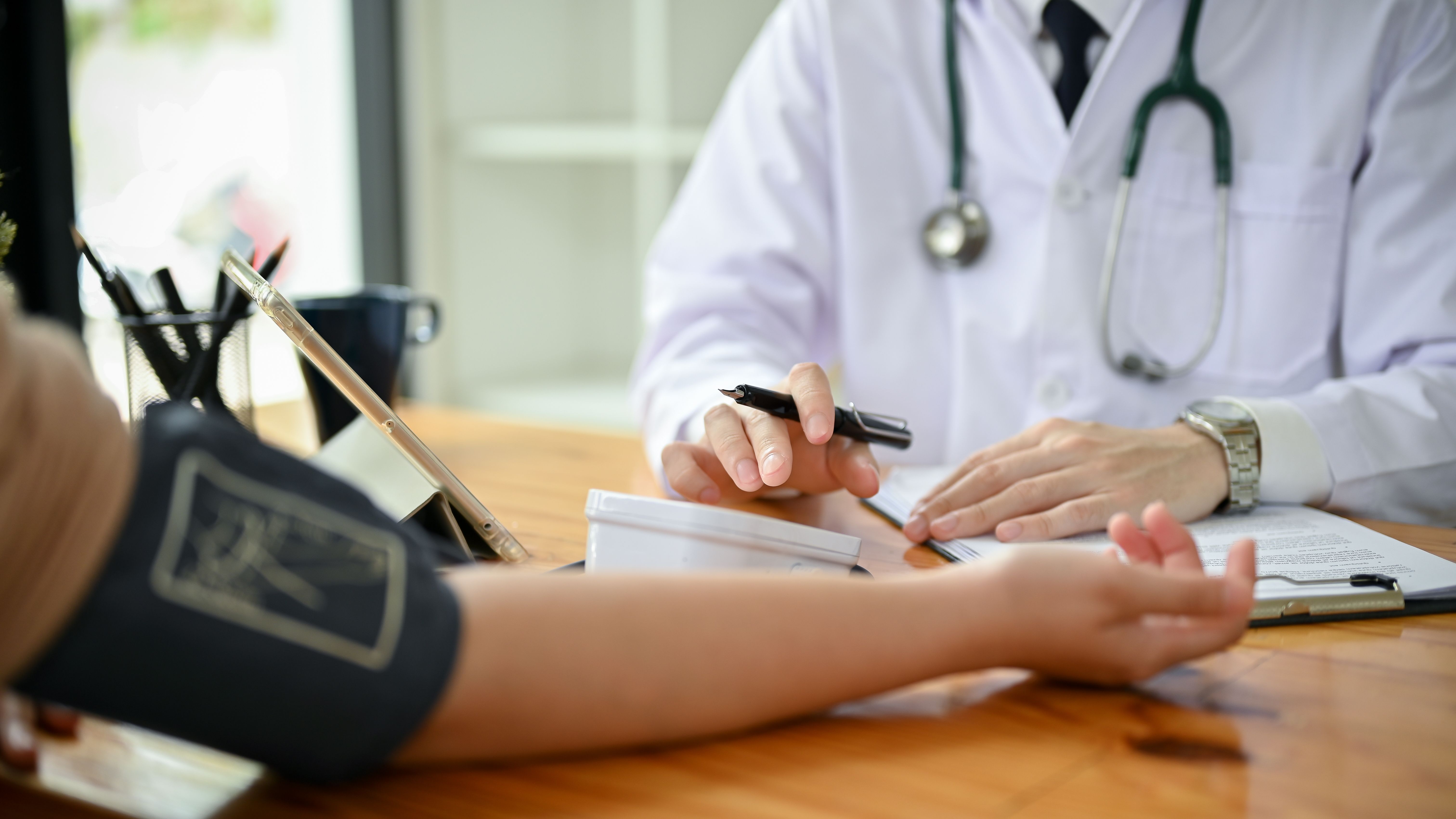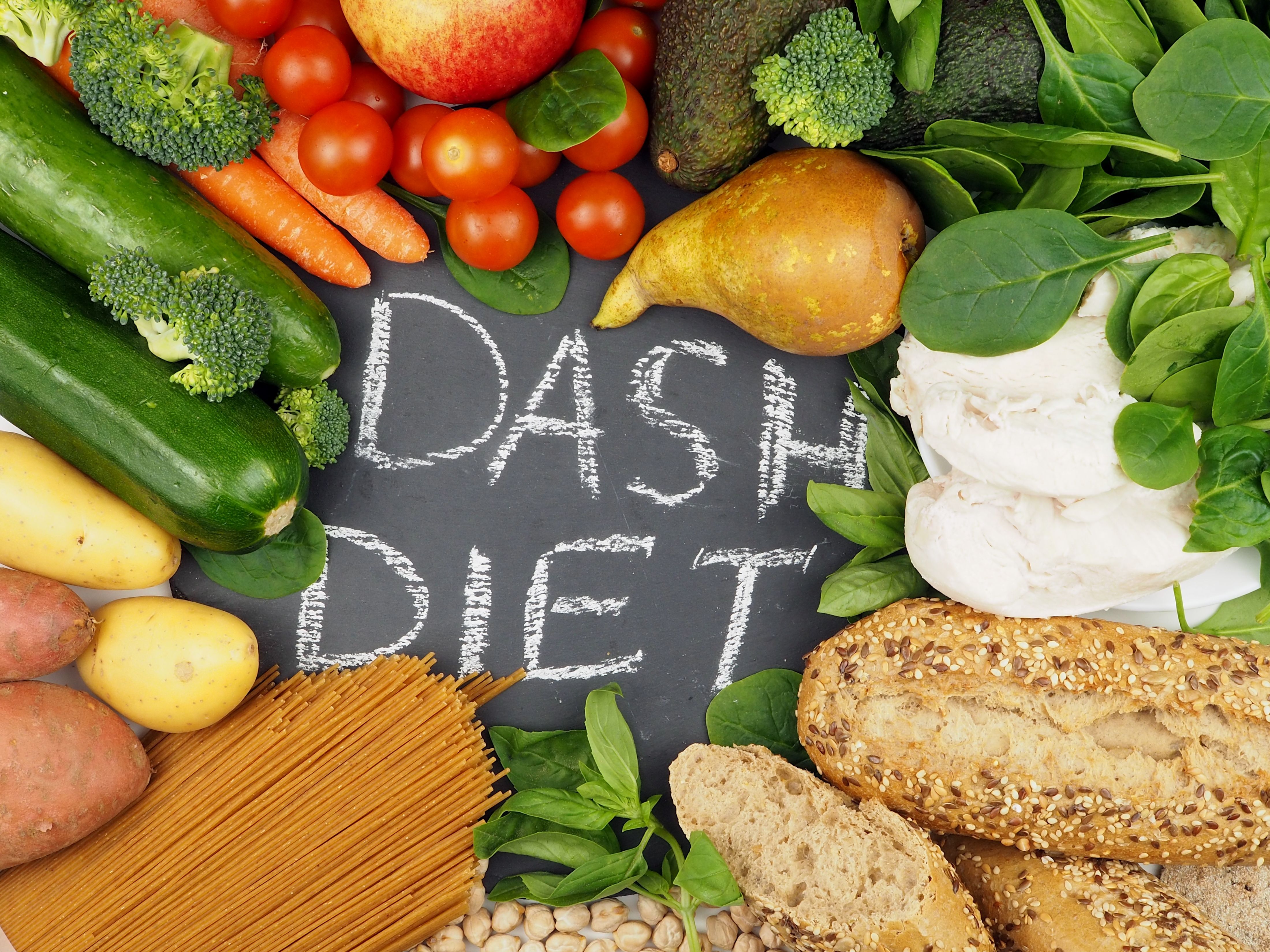What is the link between diabetes and hypertension?

It is important to keep blood pressure under control if you have diabetes, as left untreated, it may lead to stroke, heart disease, and other complications.
Is hypertension common in people with diabetes and vice versa?1-4
Hypertension and type 2 diabetes are common comorbidities, which means the simultaneous presence in the same person of both of these chronic illnesses, each of which requires long-term care. Indeed, hypertension is twice as frequent in patients with diabetes compared with those who do not have diabetes. More specifically, around 3 in 10 people with type 1 diabetes and around 8 in 10 people with type 2 diabetes develop high blood pressure at some stage. Moreover, patients with hypertension often exhibit insulin resistance and are at greater risk of diabetes.
People with diabetes are more at risk of developing high blood pressure if they:
- Are of African-Caribbean origin
- Are from the Indian subcontinent
- Have a family history of high blood pressure
- Have certain lifestyle factors, such as being overweight, eating a lot of salt, not eating much fruit and vegetables, not getting much exercise, or drinking a lot of alcohol
How do you explain the link between diabetes and hypertension?3
Diabetes and hypertension often occur together, and they may also share some common causes such as the following:
- Sedentary lifestyle with excessive calorie intake
- Obesity or being overweight
- Activation of the immune system
- Inflammation
- Oxidative stress
- Insulin resistance
Furthermore, a person with diabetes either does not have enough insulin to process glucose or has insulin that does not work effectively. As a result, glucose cannot enter the cells to provide energy and accumulates in the bloodstream instead. High blood glucose levels can then cause widespread damage to tissues and organs, including those that play a key role in maintaining healthy blood pressure. As an example, damage to the blood vessels and kidneys can cause blood pressure to rise.
What are the diabetes and hypertension complications?1,3,4
If you have diabetes, you should aim to keep your blood pressure well controlled. Having high blood pressure is one of several cardiovascular risk factors. Left untreated, hypertension can lead to heart disease and stroke. A person with diabetes and high blood pressure is 4 times as likely to develop heart disease as someone who does not have either of the conditions.
Without treatment, diabetes and high blood pressure may also lead to serious complications, such as eye problems or kidney failure. Managing blood sugar levels and blood pressure can help prevent these complications.
Treatment and management of high blood pressure and diabetes1,3,4
The treatment and management of high blood pressure and diabetes includes a change in lifestyle risk factors where these can be improved. Furthermore, many people with diabetes need to take medication to lower their blood pressure.
Specific treatment for high blood pressure is determined based on the following:
- Your age, overall health, and medical history
- Extent of the disease
- Your tolerance for specific medications, procedures, or therapies
- Expectations for the course of the disease
- Your opinion or preference

Lifestyle changes to lower high blood pressure include the following:
- Lose weight if you are overweight: a 3% to 5% loss of body weight can improve blood pressure readings.
- Get regular exercise: this can lower blood pressure and help manage blood glucose levels. If possible, aim to do some physical activity on 5 or more days of the week for at least 30 minutes, such as brisk walking, swimming, cycling, dancing, etc. People should also consider doing muscle strengthening exercises.
- Keep a low salt intake: guidelines recommend no more than 6 grams of salt per day. To reach it, you can use herbs and spices rather than salt to flavor food, limit the amount of salt used in cooking, avoid adding salt to food at the table, choose foods labeled "no added salt", and avoid processed foods as much as possible.
- Keep a balanced and healthy diet: the Dietary Approaches to Stop Hypertension (DASH) diet is often recommended for managing blood pressure and overall well-being. This typically includes eating plenty of fresh fruits and vegetables, focusing on high fiber foods, including whole grains, limiting added salt and sugar, and avoiding or limiting unhealthy fats, such as trans fats and animal fats.
- Quit smoking: tobacco smoking causes blood vessels to constrict, resulting in a temporary increase in blood pressure. It also increases the buildup of plaque within the arteries, which can lead to increases in blood pressure over time. Tobacco smoking can also increase the risk of type 2 diabetes, as well as the risk of developing serious complications.
- Drink alcohol in moderation: high consumption of alcohol can increase the risk of excess calorie intake, weight gain and diabetes, thickening of the artery walls, and raised blood pressure.

Concerning medications, if you have diabetes, treatment with medicines is usually advised if your blood pressure remains at 140/80 mm Hg or above despite lifestyle treatments. The target blood pressure is below 130/80 mm Hg if you have had kidney or eye problems or have had a stroke.
Numerous medications are available to help manage hypertension:
- Angiotensin-converting enzyme (ACE) inhibitors: these reduce production of the hormone “angiotensin” that causes the arteries to narrow. It allows the blood vessels to relax and dilate, thereby lowering blood pressure.
- Angiotensin II receptor blockers: these block the effects of angiotensin. Without angiotensin, the blood vessels remain open, thereby reducing blood pressure.
- Beta-blockers: these help to lower blood pressure by reducing heart rate, the heart’s workload, as well as the heart’s output of blood.
- Calcium channel blockers: these prevent calcium from causing the smooth muscles of the heart and arteries to contract, resulting in less forceful heart contractions and a relaxation of the blood vessels. Both result in a reduction in blood pressure.
- Diuretics: these help the body to remove excess sodium and water, which reduces blood volume and helps manage blood pressure.
- Vasodilators: these cause the muscular walls of the blood vessels to relax and dilate, allowing blood to flow through more easily, thereby reducing blood pressure.